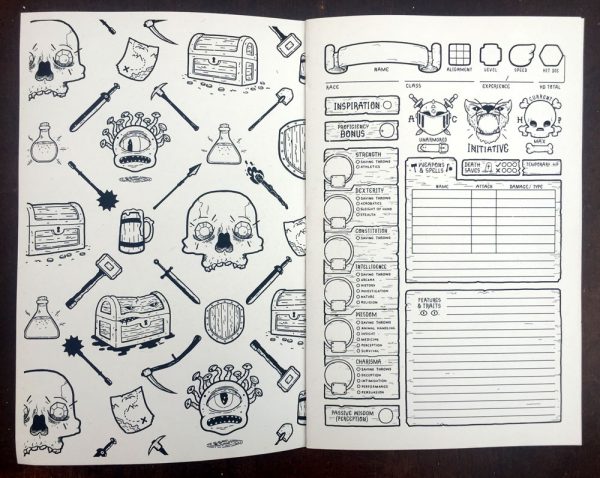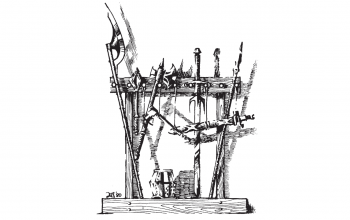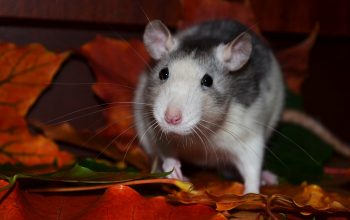
My DMs Guild adventure will be publicly available incredibly soon! And as I’ve recently decided to attend Pax Unplugged this year, I started to wonder if maybe I shouldn’t be ready to run this thing at conventions to promote it. It seems like a reasonable idea, but I’ve never run a 5th edition D&D game as a convention game before, and so some of the logistics around that have been eye opening.
To start with, I guess I will need some pre-generated characters. I have a standard cadre of OD&D characters I use for convention games, maybe I could convert them? That would greatly limit the race and class distribution — is that a good or a bad thing? Honestly recently I’ve been considering the idea that if I ever did start a 5e campaign I’d like to at least start out limiting it to the races and classes in the free basic rules, which means just the big four for each: dwarf, elf, human, or halfing for race and fighter, wizard, rogue, and cleric for class. Hm, given my use of OED, that does mean at least adding clerics back into the mix.
Also, my adventure is balanced for levels 6-8, so it turns out there are a lot more options within even just those four classes to pick from. My wizards will need to pick arcane backgrounds, my fighters a fighting style, my rouges an archetype, and my clerics a deity. In fact, as I started down this road I realized that even though I’ve been running 5e games for months now, what I don’t know about 5th edition could fill a book – the player’s handbook as it turns out! I’ve been relying on my players to be experts on their own class, which means the only class I really know is the one I’ve played: wizard.
Another problem is that it looks like dndbeyond has made me quite lazy. The benefit of that site is that I really don’t need to know a lot of details, since they’re all right there at the touch of a button when needed. Unfortunately this doesn’t help when you’re trying to create a lot of characters from scratch up front. In fact it kind of exposes one of the problems I have with dndbeyond: the lack of consistent source filtering.
For example, I sat down to create a 7th level rogue. One of the first things it presented me with was a series of check boxes for what extra sources I wanted to use. Great, I unchecked everything! Next it asked me to pick a race, and there’s a drop-down to “filter race sources”. Hm, that’s weird, but OK I picked “Basic Rules”. And yet the list still includes all the Player’s Handbook races, not just the four I expected to see. Moving on I added the Rogue class, set level to 7, and when I went to pick the archetype I got a list of 7 options. At first I thought holy cow, I really don’t know anything about how rogues work! So I cracked open my player’s handbook to read a bit and discovered only 3 archetypes. What’s going on here? The answer is simply that dndbeyond is not truly filtering every option by the sources I picked up front.
I see this problem with my wizard character all the time. Every time I level up and pick new spells, the number of options is astronomical because it’s presenting me with everything from every book I own on the site. Or rather, everything from every book my DM owns and has shared with our campaign, which turns out is all of them. Wizards of the Coast kindly granted Bob access to everything when we started using 5th edition because, well because he’s Bob. But I don’t want that, I want to restrict my options down to just the player’s handbook. The site makes it very difficult to do that, or to even know when I need to do that.
So what am I left with? I think the most obvious choice is to go low-tech. Time to print out some character sheets, get out my #2 pencil, and do it the old fashioned way. Oh, hmm… character sheets.
Wow, there are a lot of options out there. After a little digging I landed on this one by Luke Howard. It’s not free, but I liked it enough to shell out the $3. I love the side-by-side half page layout — it’s very reminiscent of the old B/X character sheets that are so near and dear to my heart. Also I’m a sucker for this hand-drawn style. An eight page booklet feels like a little much, so I monkeyed with it and got it down to 4 pages, which is ultimately the front and back of a single sheet of paper. I removed the two pages of helpful hints (helpful though they were), the page of blank lines for notes, and the second page of the spells listing since I know I only need up to level 4 spells. The end result feels pretty reasonable and looks attractive to me.
Now I’m kind of psyched to sit down with my player’s handbook, some dice, some sheets, and a pencil and make up some pre-gens! I’m sure it will be frustratingly slow with all the options I’ll have to dig through, especially at level 7. On the other hand, this feels like a really great way to familiarize myself more with the rules for each specific class. In the past I may have gotten away with insisting my players be the class ability experts, but that didn’t always work. I was never totally immune to questions at the table on how some class ability was supposed to work where I had literally no idea and had to just make stuff up on the spot. And if I really intend to run this for strangers, I had better be ready for anything.




It does sound like a good way to get more familiar with the systems, especially since you are doing levels 6-8, which is right about where I think the system starts to get hairy.
That said, I think for a convention game it would be totally legit to stick to what is presented in the free rules (which I kinda with they would publish as a stripped down softcover)
I do miss the days of sitting down and making characters for character’s sake, but then I still just find 5e to be too fiddly, Pick a race, pick a subrace, pick a class, think ahead to your path, backgrounds and which proficiencies overlap…
That is a sweet character folio though.
Do you mean the pre-gens available here?
https://dnd.wizards.com/articles/features/character_sheets
I looked at those, but I find them so bland. In my OD&D games, the character that is pretty much universally picked first is “Bungo the Drunk”, because that name just jumps off the page. But then the little elements start to shine — he’s a halfling fighter which is an interesting combo, he has a bunch of potions which is funny considering his moniker, he has an intelligent sword that’s a bit of a coward and only speaks to him telepathically (is it really intelligent, or is Bungo just drunk again?)
I’ve become so used to having these characters at the table that I hate to trade them for something more generic. I’ve decided instead to try and pick my 6 favorites (I have 12 in my OD&D pile) and try to make some loosely-inspired-by 5e characters out of them. Bungo has been pretty straight forward, but now I’m looking forward to turning “Ilya of the Holy Ruins” into a cleric — it feels like a good fit for her.
Oh no, I had not seen those before. I meant using just what was in the free rules to make the pre-gens. The main 4 races/classes with the default options. But yeah, giving them little hooks and built in quirks would make for good fun.
I actually strongly considered doing that, but the free “Basic Rules” are a bit spotty on what they do and don’t include. Eg, in the Wizard section they only cover one school (Evocation). Ultimately I decided to stick to Player’s Handbook, and then just self-impose a limit on the main four races and classes.
Your players are already familiar, as a whole, with a greater mass of the Player’s Handbook than you are, right? Maybe you should outsource pregen creation to them; say “hey, I need X characters of the following race/class combos, with the following stipulations as to what they need to be able to do for my module…”
Granted you won’t learn about those classes and their options that way, but I think you might wind up with more robust characters when made by people who know the class quirks; I wouldn’t expect, say, someone who only knows bards to fill a wizard’s spellbook with spells that are actually good rather than just sound cool at first glance, for example.
This is an excellent idea. Maybe I could even iron-chef it with like “I need a level 7 halfling bard, which incorporates the following themes: nautical and explosive. Go.”